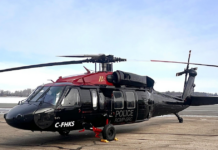In a recent report published by the Department of National Defence (DND), 35% of active Canadian Armed Forces (CAF) members interviewed reported not having the necessary equipment required to complete missions.
Three unclassified audits have exposed serious gaps and weaknesses in the readiness of the Canadian military across the land, sea, air and space domains.
Auditors found that on all fronts the military faced significant challenges in meeting the current and future needs of theCAF, as well as fulfilling Canada’s broader commitments to NATO and other allies.
One of the programs evaluated was the Ready Land Forces, which concluded that the Canadian Army (CA) did not have the equipment necessary to fulfil its training and readiness obligations. The program also lacked reliable data to accurately measure and report the situation.
“The CA does not have enough serviceable key land fleet to meet training and readiness levels,” wrote auditors.
“This current state of land equipment is creating concerns about the CA’s ability to prepare for and meet the land equipment requirements of the future.”
Additionally, the lack of personal equipment for individual units was cited as a chief concern by the report.
“There may not be enough personal equipment to adequately outfit CA members, as 35% of CA members surveyed indicated they did not have the personal equipment needed to complete their assigned tasks,” the report found.
In June, reports emerged that Canadian soldiers deployed on international missions in Latvia were forced to pay for their own equipment out of pocket.
On top of a lack of equipment, Canada’s military was found to be limited in its ability to transport and sustain the stock it has in its inventory, often having to rely on allies to meet their demands.
“The CA’s ability to transport equipment for training and operations is limited, often resulting in the CA having to rely on allies and industry,” wrote auditors.
The audit also evaluated Canada’s Ready Air and Space Forces program, concluding that the Royal Canadian Air Force’s ability to meet its readiness requirements was “compromised.”
“Program data suggests the RCAF is experiencing a personnel crisis linked to both recruitment and retention. There are vacancies in a number of key occupations across the RCAF,” the report found.
“Personnel shortages are exacerbated by decreased numbers in recruitment during the pandemic, the overburdening of existing RCAF members, an increase in domestic operations, the “missing (hollow) middle” and an increase in RCAF capabilities that will require sufficient levels of ready and trained personnel.”
When it comes to responding to international threats, auditors found that the Ready Joint and Combined Forces program was ill-equipped and struggling to meet NATO commitments.
“Personnel shortages and a perceived lack of training have impeded the integration of joint enablers. Among survey respondents, 44% felt that space and cyber capabilities are not being fully integrated,” wrote auditors.
“The CAF will be challenged to meet its commitments to NATO without a correction to its strained human resource levels.”






















